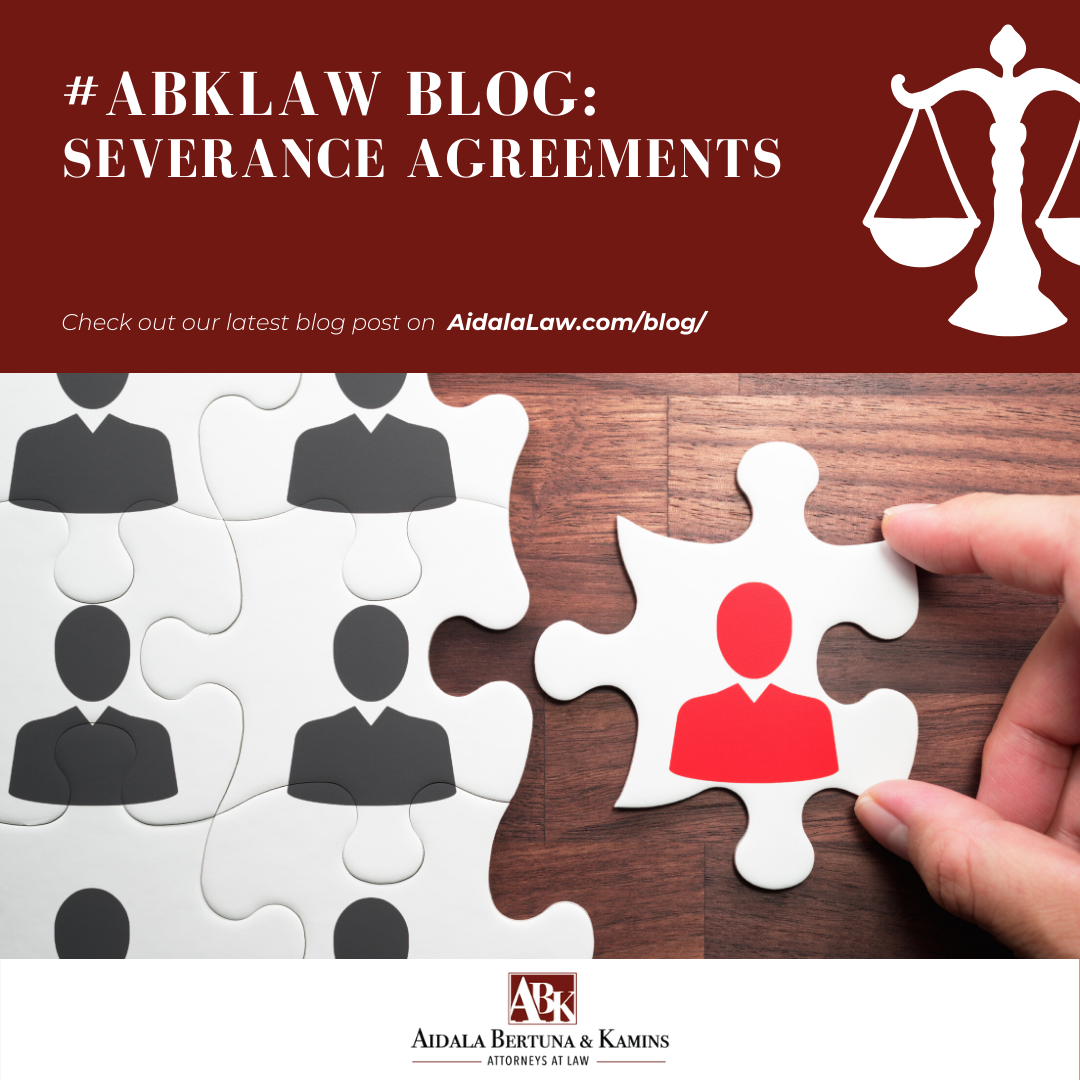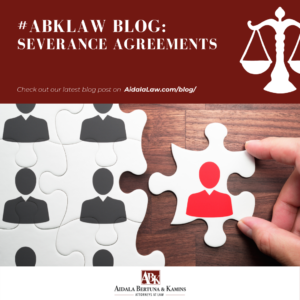
27 Mar ABKLaw BLOG: Severance Agreements
“I am going to make them an offer they can’t refuse” – Vito Corleone
BLOG from #ABKLaw Lawrence Spasojevich, Esq.: Severance Agreements
The week March 22, 2020 saw over three million individuals file unemployment claims, the most since 1982, as a result of the economic effects of the COVID-19 virus. That represents almost one percent of the entire workforce of the United States.
If you are one of the individuals who were unfortunate enough to be one of those three million, the chances are that you received a severance offer from your employer. Your initial reaction, and most natural one, is to quickly sign the proposal to ensure that you receive some sort of wages while you search for new employment. You are probably grateful that your employer offered you a severance at all.
However, you need to understand what a severance agreement is before executing the document. A severance agreement is, essentially, “shut up” money. Along with the extension of benefits and a couple of weeks of pay, you will be waiving almost all waive-able claims against the company. The severance agreement will also most likely include a non-disparagement clause that applies only to you, a confidentiality agreement that only applies to you, and will also include a non-compete clause and non-solicitation clause in the most extreme examples.
At this juncture, upon receipt of the severance agreement, a normal reaction would be to execute and move on. But ask yourself, why is the severance agreement being offered to me? An employer, unless mandated by the employment contract, is not required to provide you with a severance agreement, and there does not exist a general requirement that an employer offer you two weeks for every year worked.
So, why offer severance at all? Out of the goodness of the employer’s heart? No, there would not be so many strings attached if the offer was an altruistic one.
The reason why employers offer a severance agreement is because of the certainty it provides. Upon execution, the employer knows that you, as a former employee, is not going to sue them, and, if you do, you would have waived all your claims against them. The employer knows that you, as a former employee, will not disparage the company and keep all of its secrets confidential. Finally, the employer knows that you, a former employee, will not compete against them or solicit their customers or other employees.
That is valuable to employers.
So, before executing that severance agreement, it is incredibly crucial that you consult with an attorney to ensure that you have no valid claims that will be waived, which would be more valuable than the amount offered in the agreement. Further, consulting with an attorney will allow you to thoroughly understand the terms and conditions of the agreement in exchange for the proposed monetary amount as most severance agreements have a “claw-back” if you violate the agreement.
The amount offered by the employer is often not a bottom-line amount and is negotiable because of the value of the agreement. By consulting with an attorney, you ensure that all potential leverage in negotiation is discovered and used to increase that severance offer or negotiate more favorable terms. So, Don Corleone, I respectfully refuse.
If you have a particular legal matter that requires immediate attention, please call 212-486-0011 or email us at Info@AidalaLaw.com, and we will do our best to address your individual situation.

#NewYorkLaw #NYLawFirm #CriminalDefense #CivilLitigation #Appellate #AttorneyDisciplinary #RealEstate #PersonalInjury #EmploymentLaw



